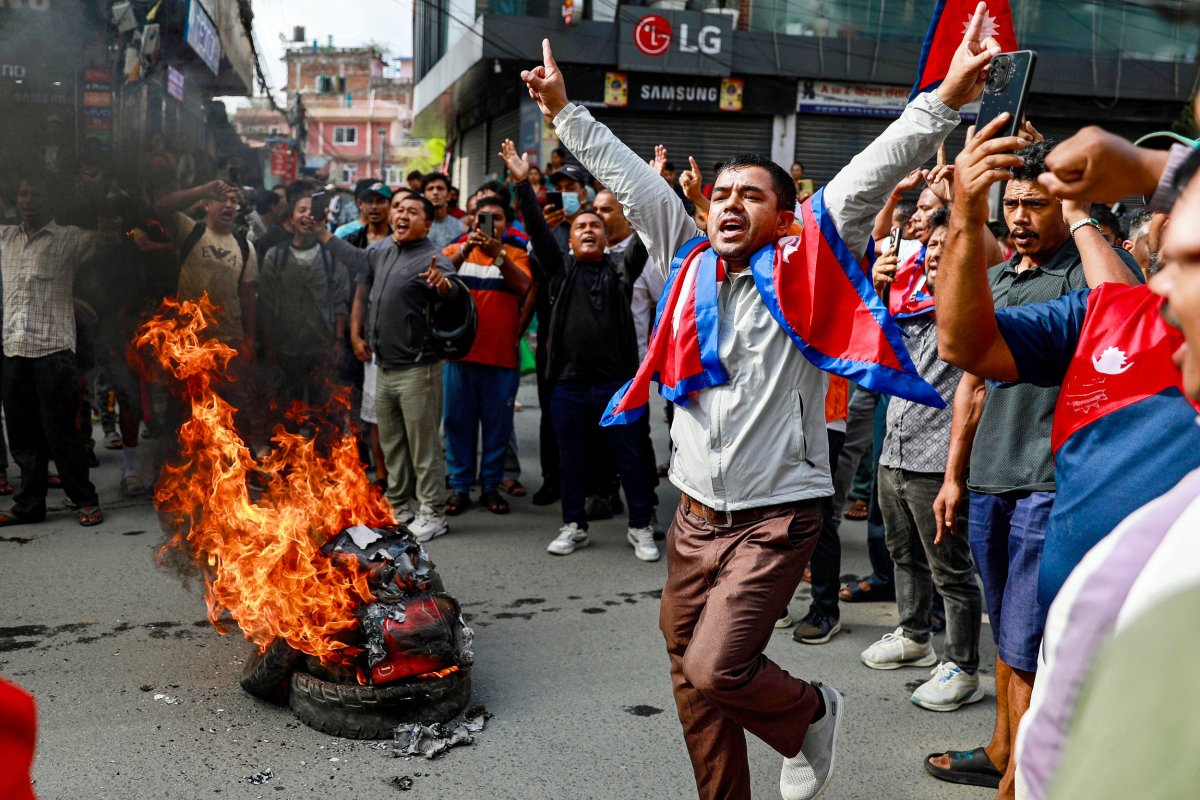By Bafana Phalane
Across the globe, Generation Z(those born roughly between 1997 and 2012) represents not just the future, but the present. With nearly 24.6% of the world’s population, they form the largest generational bloc. In the United States, they number close to 70 million, second only to Millennials, while in Kenya, Gen Z accounts for 18.4 million people, about one-third of the population. These numbers alone show their capacity to shape economies, politics, and culture on a massive scale. Beyond their demographic weight lies influence. Gen Z is the first truly digital-native generation, equipped with the tools of mass mobilization at their fingertips. Their capacity to connect, organize, and challenge entrenched systems is unmatched by any generation before them.
The world witnessed this power dramatically in Nepal in September 2025. When the government banned 26 social media platforms including Facebook, YouTube, WhatsApp, and Instagram. Gen Z interpreted the move not just as censorship, but as an attack on their identity and freedom. The response was swift and unprecedented. Protests erupted across cities such as Kathmandu, Pokhara, Birgunj, and Butwal, led primarily by students and young professionals. Chants like “Shut down corruption, not social media” captured their frustration with systemic failure. The demonstrations escalated into violent confrontations with security forces, leaving at least 22 dead and hundreds injured, while curfews and military deployments were imposed. Amid the turmoil, new leaders emerged, most notably Balendra Shah, a rapper-turned-mayor who became a unifying voice for the movement. What started as a stand against censorship quickly transformed into a wider rebellion against corruption and poor governance. Nepal’s Gen Z proved that once awakened, their collective strength could destabilize governments and redraw political lines.
Thousands of kilometres away, Kenya’s Gen Z has similarly demonstrated how digital power translates into real-world influence. During the #RejectFinanceBill2024 protests, young Kenyans organized leaderless but coordinated demonstrations against proposed tax hikes. Using social media platforms such as TikTok, X (Twitter), and Instagram, they mobilized protestors and shared updates in real time. They crowdfunded logistics, provided medical support to injured demonstrators, and even coordinated blood donations and mental health care for participants. Their activism extended to cyber tactics, including disrupting government websites, exposing corrupt practices, and running accountability campaigns online. The protests gained global attention, revealing that Gen Z’s activism is not spontaneous chaos but organized, values-driven, and deeply rooted in demands for justice. With 33% of Kenya’s population under 25, these movements provide a glimpse into what happens when a demographic bloc unites behind a cause.
The cases of Nepal and Kenya reveal three important truths about Gen Z. First, they are too numerous to be ignored, their demographic dominance ensures they will soon be the largest voting and consumer base globally. Second, they are digitally fluent, using technology not just for personal engagement but as a toolkit for building communities, spreading ideas, and holding leaders accountable. Third, they are values-driven, Gen Z movements are often rooted in ideals of justice, equality, and transparency rather than short-term personal gain. Yet, the same force that can transform societies can also destabilize them if left unguided. Leaderless protests may ignite sparks, but without vision and strategy, they risk burning out or being co-opted.
History shows that once a generation realizes its collective power, it is nearly impossible to contain. Gen Z is on the cusp of such an awakening. Already, they are reshaping governments, rewriting the rules of activism, and disrupting traditional hierarchies. But transformation is not inevitable. Unless Gen Z’s energy is channelled into constructive structures through education, civic engagement, leadership training, and intergenerational collaboration, their strength could manifest as anger without direction. The choice is clear, societies can either ignore Gen Z until unrest forces recognition or engage them now as partners in transformation.
From Kathmandu to Nairobi, Gen Z has shown that they are not passive observers of history but active participants. Their numbers are vast, their tools powerful, and their values uncompromising. They are the generation that will define the next era of governance, culture, and social change. The task before us is urgent, to harness this energy before Gen Z fully awakens, guiding it toward building societies that are not only more connected, but more just, accountable, and inclusive. Because when Gen Z rises, the world must be ready.
Bafana Phalane: Editor and Founder @ Maverick Point







